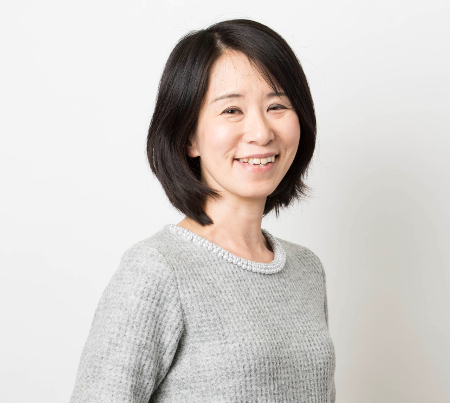
Full Text
簡体字 / 正體字 / English摘要:
本文的目的是,从战后赔偿、补偿问题是作为中日关系对立主因之一的观点,分析中日之间战后补偿问题浮现及政治化的过程。
对中国而言,战后补偿问题不单单是金钱的、物质的补偿问题,而是迫使日本建立“正确”历史认识的问题。日本对中国进行某种赔偿、补偿的机会主要有三次,即旧金山和约签订时、中日邦交正常化的谈判以及1995年以后的战后补偿相关诉讼。然而,在旧金山和约签订时,美国行使其影响力,规定同盟国放弃一切赔偿要求。日本在美国的影响力之下,得以避免了赔偿。牵涉到旧金山和约,使得中华民国政府优先考虑与同盟国同等受益事项,在日华和平条约中放弃对日赔偿请求权。在中日邦交正常化之际,中华人民共和国政府基于外交和政治上的判断,放弃求偿。在1995年以后的个人请求赔偿裁判中,驳回诉讼的因素有以下4点:①否定个人在国际法的法主体性、②国家无答责、③除斥期间、④通过“日华和平条约”或“中日联合声明”、“中日和平友好条约”放弃损害赔偿请求权。特别是在2007年4月最高法院根据“中日联合声明”认定已放弃赔偿请求权后,最高法院又以同样理由驳回请求。
个人对日本的索赔活动,必须要由战争受害者提起诉讼,并且与中方支援者的民族、爱国意识、日本人权派律师团发起的援助活动相互结合。而这个活动在获得中国政府认可后,才得以展开。
近年来,战后补偿问题从决定中日关系的重要因素之一,逐渐边缘化,但依然是取决于中日关系的依变项。不过,即使说已经被边缘化,战后补偿问题本身仍未获得解决。日本方面必须要注意的是中国政府在抑制这个问题。
摘要:
本文的目的是,從戰後賠償、補償問題是作為中日關係對立主因之一的觀點,分析中日之間戰後補償問題浮現及政治化的過程。
對中國而言,戰後補償問題不單單是金錢的、物質的補償問題,而是迫使日本建立「正確」歷史認識的問題。日本對中國進行某種賠償、補償的機會主要有三次,即舊金山和約簽訂時、中日邦交正常化的談判以及1995年以後的戰後補償相關訴訟。然而,在舊金山和約簽訂時,美國行使其影響力,規定同盟國放棄一切賠償要求。日本在美國的影響力之下,得以避免了賠償。牽涉到舊金山和約,使得中華民國政府優先考慮與同盟國同等受益事項,在日華和平條約中放棄對日賠償請求權。在中日邦交正常化之際,中華人民共和國政府基於外交和政治上的判斷,放棄求償。在1995年以後的個人請求賠償裁判中,駁回訴訟的因素有以下4點:①否定個人在國際法的法主體性、②國家無答責、③除斥期間、④透過「日華和平條約」或「中日聯合聲明」、「中日和平友好條約」放棄損害賠償請求權。特別是在2007年4月最高法院根據「中日聯合聲明」認定已放棄賠償請求權後,最高法院又以同樣理由駁回請求。
個人對日本的索賠活動,必須要由戰爭受害者提起訴訟,並且與中方支援者的民族、愛國意識、日本人權派律師團發起的援助活動相互結合。而這個活動在獲得中國政府認可後,才得以展開。
近年來,戰後補償問題從決定中日關係的重要因素之一,逐漸邊緣化,但依然是取決於中日關係的依變項。不過,即使說已經被邊緣化,戰後補償問題本身仍未獲得解決。日本方面必須要注意的是中國政府在抑制這個問題。
Abstract:
The purpose of this paper is to analyze the process by which the postwar reparations issue emerged and became politicized between Japan and China, with an awareness of the issue of postwar reparations and compensation as one of the causes of conflict in Japan-China relations.
The post-war compensation issue is not just a matter of financial and material compensation for China, but the problems that force Japan to recognize "correct" history. There were three main opportunities for Japan to make some kind of compensation or compensation to China. These are the San Francisco Peace Treaty, negotiations to normalize Japan-China diplomatic relations in 1972, and the proceedings for postwar compensation initiated after 1995. However, when Japan signed the San Francisco Peace Treaty, The United States exerts its influence on the Allies to waive all the right to demand compensation. Therefore, Japan was able to avoid compensation under the influence of the United States. In connection with this San Francisco Peace Treaty, the Republic of China prioritized getting the same treatment as the Allies and waived the right to demand compensation under the Japan-China Peace Treaty. In normalizing Japan-China diplomatic relations, the Government of the People's Republic of China abandoned the claim for compensation based on diplomatic and political judgment. In the proceedings for compensation claims by individuals since 1995, the following four points were the factors for dismissing the proceedings. (1) Individuals are denied legal independence under international law, (2) The principle is that even if an individual is damaged by exercising the power of the country, the country will not be liable for compensation if it is an act before the enforcement of the State Redress Act in 1947(国家無答責), (3) The period of exclusion , (4) "Japan-China Peace Treaty" or " Japan-China Joint Communique of 1972 " and "Japan-China Peace and Friendship Treaty" waived individual's right to claim damages. In particular, after the Supreme Court ruled that the right to claim compensation was waived by the " Japan-China Joint Communique of 1972 " in 2007, the claim was dismissed by the Supreme Court for the same reason.
In order to claim personal damages against Japan, it was necessary to link the proposals from the war victims themselves, the nationalism and patriotism of Chinese supporters, and the support activities of Japanese human rights lawyers. And when the Chinese government accepted this, it became possible for Chinese victims to clime personal damages for the first time.
In recent years, the post-war compensation problem has been marginalized from one of the factors that determine Japan-China relations, and exists as a dependent variable defined by Japan-China relations. However, even though it has become marginalized, the postwar compensation problem itself has not been resolved. The Japanese side should keep in mind that the Chinese government control this well.